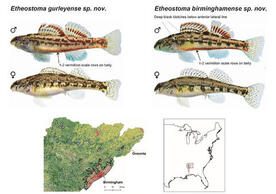
May 18, 2021
In a recent Cell Press study, YIBS Gaylord Donnelley Postdoctoral Associate Thomas Boag examines “how mollusks such as clams, sea snails, and cephalopods will be particularly vulnerable in tropical regions if global climate projections hold true.” Dr. Boag and researchers from Stanford University and the University Nebraska - Lincoln “analyzed 145 million years’ worth of data, in increments of approximately 10 million years. They looked at geochemical data that reveal past ocean temperatures, fossil data of mollusks, and models for habitability and biodiversity”. For more information, please click here for an article published by Yale News.



